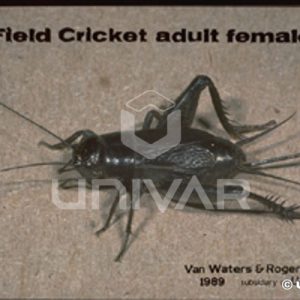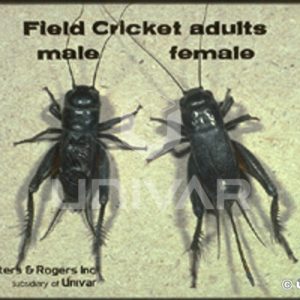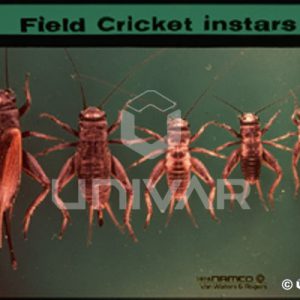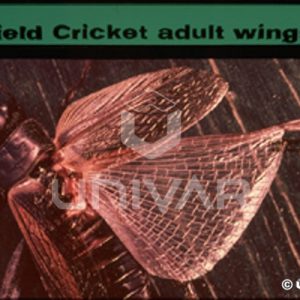
Common Name: Cricket – Field cricket
Latin Name: Gryllus
Common Family Name: Crickets
Latin Family Name: Gryllidae
Other Names: There may be as many as 25 species in this genus in North America. Often the name Gryllus assimilis is used for all field crickets.
Origin: These crickets are native to North America, and well as throughout Central America and into South America.
Biology: These are outdoor insects, but they commonly enter structures to escape weather extremes or to seek hiding places following nocturnal activity. Like the House Cricket they have been known to damage fabrics, paper, leather, furs or other materials indoors, and outdoors they can cause tremendous destruction to landscape or agricultural plants. These crickets are subject to huge population surges, and may suddenly be extremely abundant almost overnight. Weather conditions appear to be one factor that influences this. Depending on the species, either nymph or egg stages may over-winter, hatching or emerging in spring. Females lay from 150 to 400 eggs by inserting her ovipositor into the soil. Nymphs develop to the adult stage in about 3 months, and adults live from 1 to 2 months.
Identification: Field crickets are black, compared with the tan or light brown house crickets. They are about 1 to 1.5 inches long, and adult females also will have a very long ovipositor. The cerci on both sexes are very long and thin. They have long, thin antennae and long, enlarged hind legs designed for jumping. The adults have wings that are held flat and overlapping on their abdomen, and nymphs have no wings..
Characteristics Important in Control: Control for this cricket as an occasional invader from the outside begins with elimination of harborage sites outdoors. Removal of yard debris, wood piles, trash, or thick groundcovers will reduce the population of the insects close to the structure. A treatment around the foundation of the structure with a residual insecticide will intercept and kill most of the insects that attempt to enter, and the use of insect granular baits on the exterior can also be very effective.



